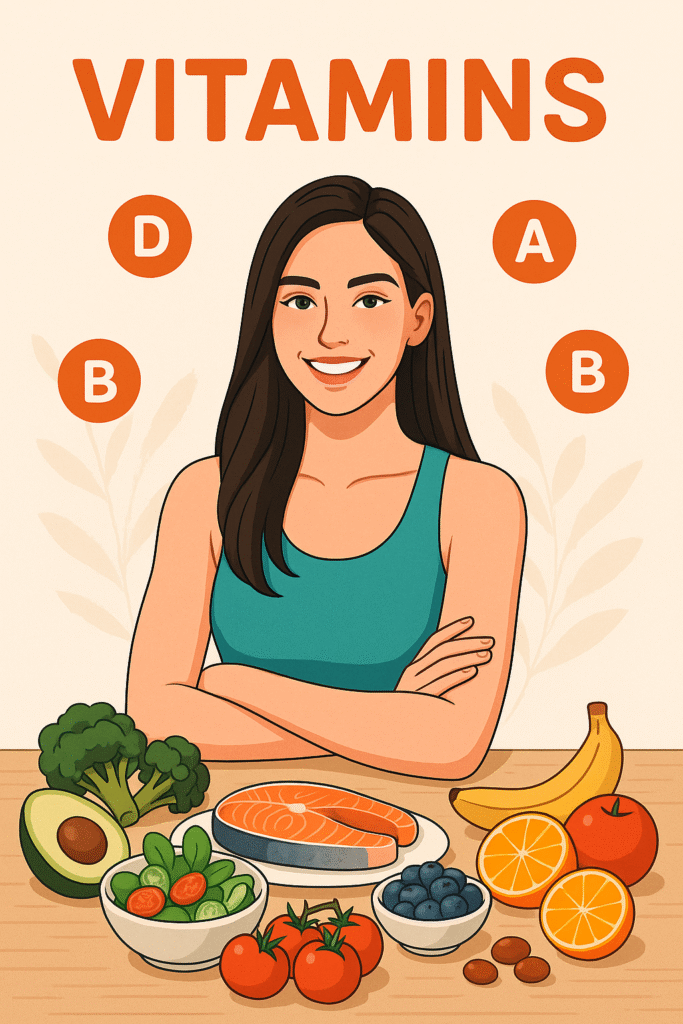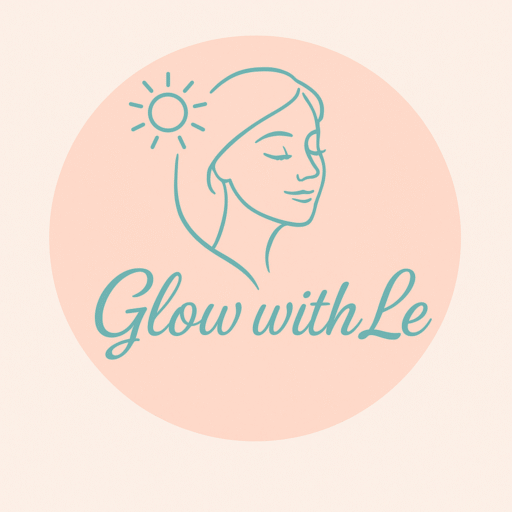
Essential Vitamins for Health and Energy
Essential vitamins are the building blocks that keep our bodies running smoothly. In today’s fast-paced world, it’s common to feel tired, stressed, or like something is missing from your diet. While I’ve always been passionate about health and wellness, I started looking deeper into vitamins and supplements when I realized how easy it is to miss key nutrients—even when you try to eat well. This guide is a simple, beginner-friendly look at the most important vitamins, what they do, and how to include them naturally in your daily life.

Vitamin A – For Healthy Eyes and Skin
- Why you need it: Supports vision, boosts your immune system, and helps maintain healthy skin.
- Where to find it: Carrots, sweet potatoes, pumpkin, leafy greens like spinach and kale, and animal liver.
Vitamin B-Complex – Energy and Overall Wellness
The B vitamins work together to keep your body energized and functioning well:
- B1 (Thiamine): Converts food into energy, supports heart and nerves. Sources: whole grains, pork, legumes.
- B2 (Riboflavin): Supports energy production, skin, and eyes. Sources: milk, eggs, leafy greens.
- B3 (Niacin): Healthy skin, nerves, cholesterol. Sources: chicken, tuna, mushrooms.
- B5 (Pantothenic Acid): Hormone production, reduces fatigue. Sources: broccoli, potatoes, eggs.
- B6 (Pyridoxine): Red blood cell production, hormone balance. Sources: bananas, salmon, chickpeas.
- B7 (Biotin): Healthy hair, nails, skin. Sources: eggs, almonds, broccoli.
- B9 (Folate): DNA synthesis, pregnancy health. Sources: leafy greens, lentils, avocado.
- B12 (Cobalamin): Nervous system, prevents fatigue. Sources: seafood, beef, dairy.
Vitamin C – Immunity and Glow
- Why you need it: Strengthens your immune system, fights free radicals, and brightens your skin.
- Where to find it: Oranges, lemons, grapefruits, kiwis, strawberries, and red bell peppers.
Vitamin D – The Sunshine Vitamin
Why you need it: Strong bones, immunity, overall health.
- D2: Plant-based, less effective.
- D3: Animal sources and sunlight, better at maintaining healthy levels.
Where to find it: Sunlight, salmon, mackerel, eggs, fortified dairy.
Vitamin E – Antioxidant for Skin & Hair
- Why you need it: Acts as an antioxidant, helps fight aging signs, and keeps skin and hair healthy.
- Where to find it: Almonds, sunflower seeds, vegetable oils (like olive or sunflower oil), and avocados.
Multivitamins – Are They Enough?
Convenient but may not provide enough of each nutrient. Whole foods should always come first. However, adding essential vitamins daily can improve energy and immunity.
Popular Multivitamins
Many people choose to take a daily multivitamin to fill in nutritional gaps. Some commonly used brands include Centrum, Olly, One A Day, and Vitafusion. These are available for both women and men, in tablet or gummy form, so you can pick what’s easiest for you. Always check the label to make sure it fits your needs and consult with a healthcare professional if you’re unsure.
Extra Boosts – Beyond Essential Vitamins
- Turmeric/Curcumin: Natural anti-inflammatory, supports joints and digestion. Pair with black pepper for better absorption.
- Cranberry: Supports urinary tract health, especially for women.
At the end of the day, essential vitamins aren’t about chasing trends—they’re about giving your body what it needs to thrive. A balanced diet plus essential vitamins can keep you feeling your best. Start with a balanced diet, add specific vitamins when you have gaps, and listen to how your body responds. Small, consistent steps like enjoying more colorful fruits and vegetables, spending a little time in the sun, or adding a trusted supplement can make a big difference in your energy and mood. Remember, health is personal: what works for one person might not be what you need. Focus on what supports you best, and you’ll feel the results over time.
Many people also wonder when to take their vitamins for the best results. For most essential vitamins, consistency matters more than the exact time, but there are a few tips:
- Take fat-soluble vitamins (A, D, E, K) with meals that contain a little healthy fat—this helps your body absorb them better.
- Water-soluble vitamins (like B-complex and C) can be taken on an empty stomach, but if they upset your stomach, take them with food.
- Try to take your supplements around the same time each day to build a routine.
This simple approach ensures you get the benefits without overthinking it.
For more details on recommended nutrients, visit the NIH Vitamin Guide or Mayo Clinic Vitamins & Supplements.
Looking for more lifestyle tips? Read my post on Travel Essentials – Why I Love eSIMs.
